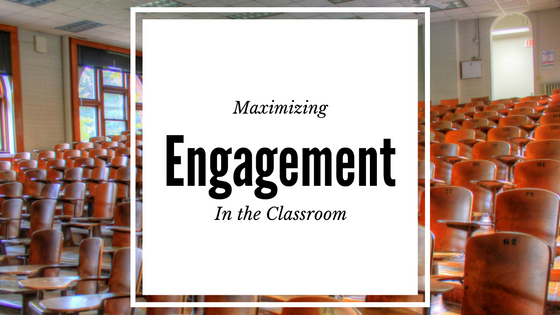
Momentum is often considered from the scientific perspective: An object in motion stays in motion. However, academic momentum is not as consistent. Instead, professors often find that student engagement has the tendency to wane near the end of the semester. This can be frustrating for both professors and students, which oftentimes leads to emotional burnout for both parties. Maintaining a consistent academic momentum in the classroom is essential for avoiding an end-of-the-year slump for both you and your students.
In order for class time to be beneficial for both student and professor, the time spent in the classroom must remain engaging. According to a study by Van Blerkom (1992), higher amounts of class attendance was a powerful predictor for better grades, which is problematic because students were less likely to attend at the end of the semester. Students who are unmotivated cannot learn well, and although motivation is inherently intrinsic, students can be set on the path of motivation when class time is incentivized.
One way to incentivize class is to increase the opportunity costs of not attending. In other words, ensuring that the perceived cost of not coming to class is much higher than the cost of attending. Actively develop the relationship between good grades and class attendance by having a balanced lecture and material ratio. For example, presenting key information that will translate into specific test questions and cannot be found solely in course materials. Although there are limitations to attendance expectations, such as personal issues arising for students, understanding and cooperation in the professor-student relationship can mitigate such effects and develops stronger reciprocal bonds.
Another way to incentivize class time is to allow students to work long-term projects and cooperative learning assignments during lecture times. Long-term assignments with incremental, short-term parts that align with the lecture allow students time to actively apply their lessons to the project while receiving necessary feedback. When students participate in cooperative projects with their classmates, they facilitate their own learning with the added benefit of social bonding; studies have shown that commitments to others in social groups lessens the effects of stress on students.
Facilitating continuous participation and engagement requires students to perceive class time to be a profitable endeavor. As a professor, incentivizing class time is a powerful tool for maintaining student momentum.

